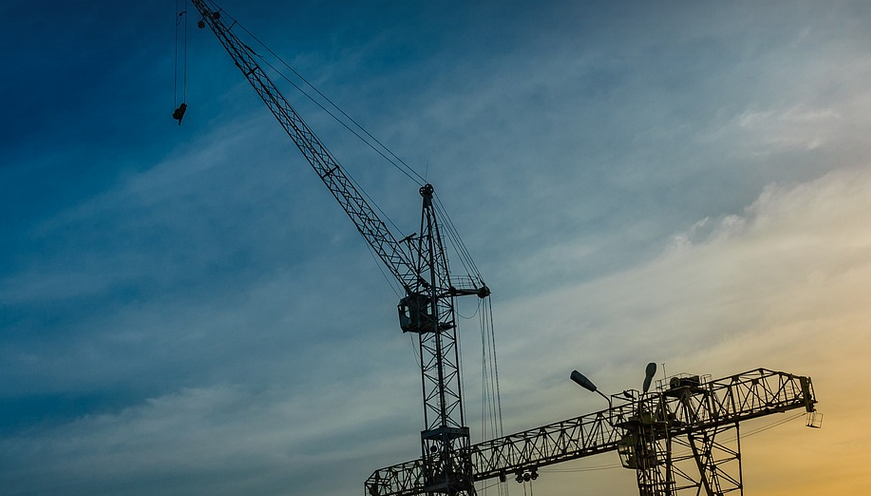Your Guide to Keeping it Green in the Heart of NJ
Welcome to the wonderful world of recycling in Burlington County, New Jersey! We all know that keeping our planet healthy is a big responsibility. But what exactly are the rules for turning your trash into treasure? In this blog, we’re going to break down the details of Burlington County’s recycling schedule and empower you to do your part for a cleaner future.
**Understanding the Basics: Why Recycle in the First Place**
Recycling is more than just tossing things into separate bins. It’s about giving old materials a second life, reducing landfill waste, conserving precious resources, and building a more sustainable community. Before we delve into specifics, let’s understand why recycling matters:
– **Environmental Protection:** Manufacturing processes often require new raw materials that come at a significant environmental cost. By reusing materials like paper, glass, and plastic, we reduce the need for those expensive manufacturing processes. This ultimately protects our natural resources and minimizes pollution.
– **Saving Energy:** Recycling uses less energy than creating something new. It’s a win-win! Think about it: you don’t have to mine for raw materials or manufacture products from scratch. Instead, recycling lets us reimagine what we already have.
– **Reducing Landfill Waste:** Our landfills are overflowing. Recycling helps solve this problem by keeping more waste out of them. It’s like a magic trick! By diverting trash to recycling facilities, we’re making space for new things and helping the planet breathe easier.
– **Economic Benefits:** Recycling creates jobs and fosters innovation in various industries. From sorting and processing materials to manufacturing new products from recycled ones, recycling is a vital part of our economy.
**Burlington County’s Recycling Schedule: Your One-Stop Guide**
Now that you have a sense of why recycling matters, let’s dive into the specifics. Every county in New Jersey has its own unique recycling program based on their local requirements and guidelines. Here’s a snapshot of Burlington County’s approach:
**1. What to Recycle?**
It all starts with knowing what you can recycle! Most items found around the home fall under one of these categories: paper, glass, plastic, metals. To make things easier, here are some examples:
- **Paper:** Newspapers, magazines, junk mail, cardboard boxes (flatten them!)
- **Glass:** Bottles and jars with lids, they must be clean and empty
- **Plastic:** Bottles and containers marked with the recycling symbol (often #1, #2, or #5), some food packaging can be recycled too!
- **Metals:** Aluminum cans, steel cans, and tin foil.
**2. What Not to Recycle?**
It’s important to keep in mind that not all items are recyclable under this program. Here’s a list of prohibited materials:
- Electronics (batteries, chargers, and other electronic devices)
- Hazardous waste (chemicals, paint, oil, etc.)
- Medical Waste (sharps, needles, blood, etc.)
- Food waste (organic waste belongs in your compost bin)
**3. The Rules of the Road: Getting it Right**
To ensure that your recyclables are sorted correctly and processed efficiently, here’s a quick guide to following the rules:
- **Clear Out Your Bins:** Ensure that items are free from food residue or liquids to prevent contamination.
- **Keep It Dry:** Wet materials can cause problems in the recycling process. Be sure your recyclables are dry before you put them in the bins.
- **Don’t Overfill:** A full bin makes it harder for sorting machines to work efficiently, so make sure to leave some space at the top.
- **Check Local Guidelines:** If you have a specific question or need more information about what can and cannot be recycled in your area, check the official website of Burlington County or contact your local recycling center.
**Beyond Recycling: Taking Further Steps for Environmental Stewardship**
Remember that recycling is just one part of environmental responsibility. Consider taking these extra steps to contribute to the overall well-being of our planet:
- **Reduce Consumption:** The less we buy, the less waste we generate. Choose reusable items whenever possible and avoid contributing to unnecessary packaging.
- **Composting:** Food scraps are not your enemy! Compost them instead of sending them to the landfill for a valuable resource that can enrich your garden soil.
- **Support Local Farmers Markets:** Buy locally grown produce and support businesses committed to sustainability and reducing their carbon footprint.
**Making a Difference: Your Actions Matter**
Recycling in Burlington County is not just about following rules; it’s about making a positive impact on our environment. By understanding the program, taking ownership of our waste, and supporting eco-friendly practices, we are all contributing to creating a cleaner and healthier future for generations to come.
